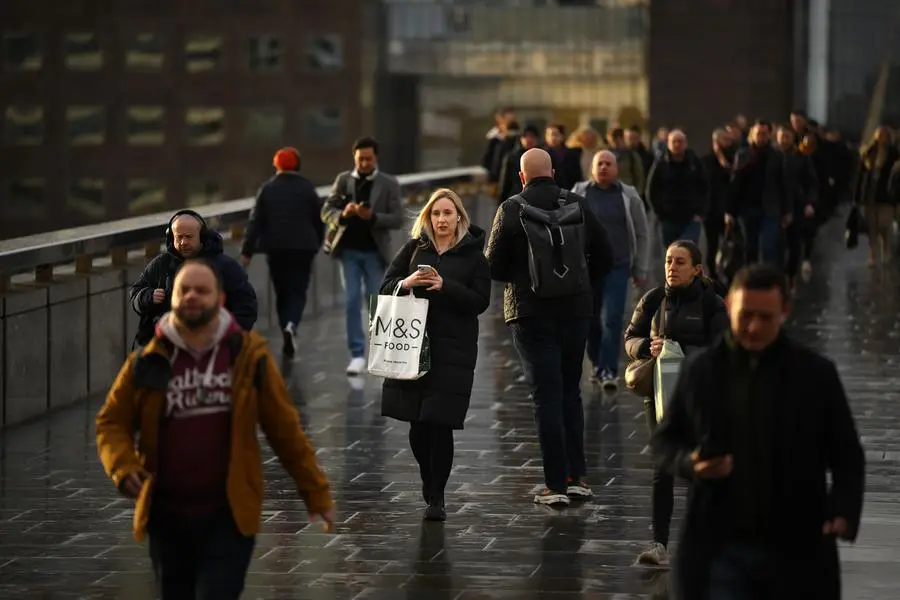PHOTO
Britain's unemployment rate dipped in the final quarter of 2023, official data showed Tuesday, firming expectations of a delay to UK rate cuts, as the country awaits key inflation numbers.
The unemployment rate fell to 3.8 percent from 3.9 percent in the three months to the end of November, the Office for National Statistics said in a statement.
Analysts said the reading firmed the prospect of the Bank of England freezing its main interest rate at 5.25 percent for at least a few months more.
The BoE has hiked borrowing costs to the highest level in 16 years as it tries to cool UK annual inflation, which is expected to have edged higher in January.
Official data Wednesday will reveal whether the UK Consumer Prices Index (CPI) had indeed risen to 4.1 percent from 4.0 percent in December.
Tuesday's unemployment data "is the first major economic release for the UK this week with inflation to come tomorrow, GDP on Thursday, and retail sales on Friday", noted Craig Erlam, senior market analyst at OANDA trading group.
"Ultimately the CPI data is what matters most."
Neal Keane, head of global sales trading at brokers ADSS, said Tuesday's "strong jobs report will allow the (BoE's) Monetary Policy Committee to stay patient and leave rates unchanged for longer".
Slightly offsetting the drop in unemployment was official data Tuesday showing that UK average regular earnings growth eased to 6.2 percent in the final quarter of last year.
- 'Job not done' -
"It's good news that real wages are on the up for the sixth month in a row and unemployment remains low, but the job isn't done," finance minister Jeremy Hunt said in a statement Tuesday.
"Our tax cuts are part of a plan to get people back to work so we can grow the economy -- but we must stick with it."
Analysts are forecasting the government to trim taxes further ahead of a general election due this year.
The Conservative party, led by Prime Minister Rishi Sunak, trails far behind main opposition Labour party in the polls and tax cuts are seen as a chance to close the gap.
Following Wednesday's inflation update, attention will turn to gross domestic product numbers to see if the UK did in fact enter a recession in the second half of last year.
Britain's economy shrank 0.1 percent in the third quarter of 2023. A fourth-quarter contraction would place it in a technical recession.
The week finishes with UK retail sales data for January. Sales by volume had in December slumped by the largest amount since the start of 2021, when Britain suffered a Covid lockdown.
The coronavirus pandemic continues to impact Britain's jobs market.
Over the past year, "the proportion of people neither working nor looking for work has risen, with historically high numbers of people saying they are long-term sick" leave, ONS director of economic statistics, Liz McKeown, said in reaction to Tuesday's data.
Many businesses have blamed this on Covid, according to recent surveys.





















